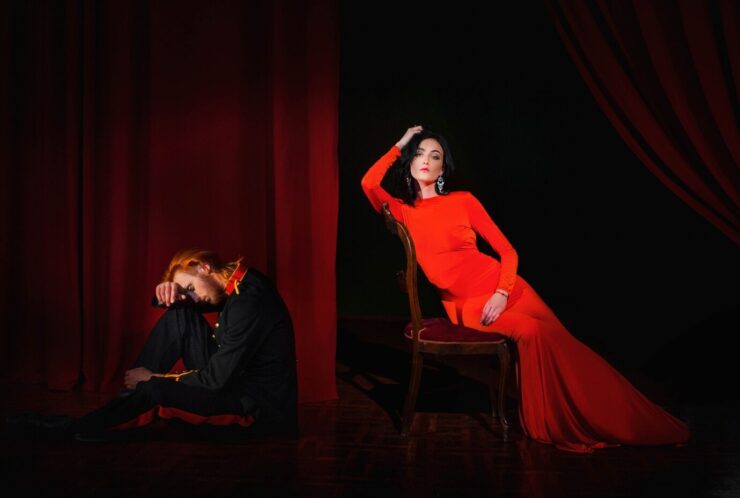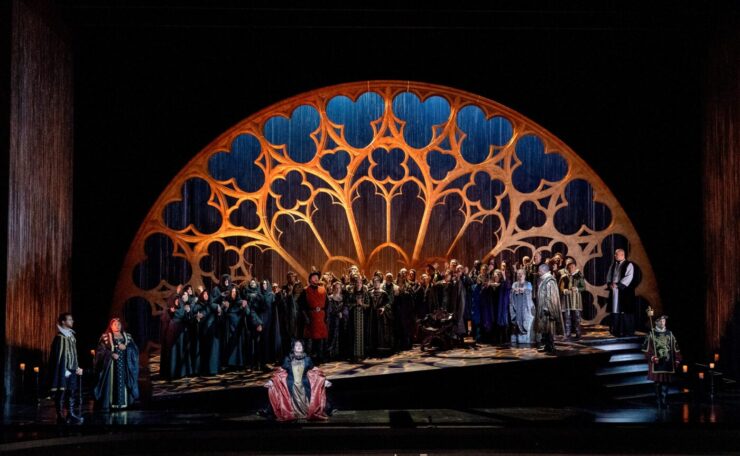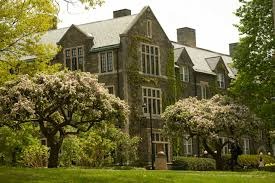Table of Contents
Bard College has become a significant stage for the opera world, attracting attention for its unique blend of innovation and classical reverence. The college’s opera classes, under the leadership of Leon Botstein, have experienced a surge in both creativity and precision, making Bard a focal point for music enthusiasts.
Under Botstein’s leadership, Bard has managed to breathe new life into timeless works, all while respecting their traditional core. His influence has created a unique environment where students learn not only the craft but also the historical and cultural significance behind each piece. The work being done at Bard speaks volumes about the direction of classical music education in today’s world.
Leon Botstein’s Impact on Bard College’s Opera Program
Leon Botstein has extensive experience as a conductor and music director, Botstein has shaped the college into a place where the classics are not just revisited but also revitalized. His expertise in conducting renowned orchestras worldwide, including the American Symphony Orchestra, brings a wealth of experience to Bard’s classrooms.
Botstein has never been one to shy away from difficult or obscure pieces. His willingness to tackle both well-known and lesser-known works sets Bard apart. By combining tradition with new interpretations, the college’s opera program has expanded its influence, attracting attention from both local and international music communities.
Reviving Lesser-Known Works

Botstein’s ability to resurrect forgotten compositions is one of the program’s most distinctive features. Instead of sticking to well-worn paths, he has chosen to introduce students to lesser-known works, which often go unperformed. This focus provides students with a more comprehensive understanding of opera and ensures that the art form remains dynamic and engaging.
Under Botstein’s guidance, Bard’s productions have ranged from rarely performed Baroque operas to overlooked 20th-century compositions. Each performance challenges students to step outside their comfort zones, offering them the opportunity to explore the nuances of pieces they may never encounter elsewhere.
Innovation in Production and Staging
At Bard, innovation in opera is not limited to musical composition. The program is also known for its forward-thinking approach to staging. Botstein encourages students and faculty to think outside traditional boundaries, fostering creativity both on and off the stage.
Production designs often incorporate modern elements, mixing traditional costumes and sets with contemporary themes. This contrast allows audiences to engage with classical works in new ways, ensuring that the productions feel fresh while still honoring their origins.
The Importance of Context in Opera Education
Opera is a complex art form, and Botstein emphasizes the importance of understanding the historical and cultural context of each piece. Bard’s opera classes focus not only on performance but also on the stories behind the music. By exploring the cultural, political, and social implications of each work, students gain a deeper appreciation for the material they perform.
This comprehensive approach prepares students for careers in the opera world by giving them the tools to approach each role with insight and depth. Whether performing a familiar aria or a forgotten overture, Bard’s students are equipped to engage with their audience on multiple levels.
Expanding Bard’s Influence Beyond Campus

Bard’s influence in the world of opera extends far beyond its campus. Under Botstein’s leadership, Bard SummerScape and the Bard Music Festival have become prominent cultural events, attracting performers and audiences from around the globe. These festivals serve as extensions of the college’s mission, offering opportunities for students to work alongside professional musicians while exposing the broader public to innovative performances.
The festivals showcase a wide range of works, from the familiar to the obscure, ensuring that every performance feels both new and relevant.
The Role of Technology in Bard’s Opera Program
While Bard’s opera program is deeply rooted in tradition, it also embraces modern technology. Botstein has encouraged the use of digital tools to enhance both education and performance. From online resources for students to high-tech stage designs, Bard incorporates the latest innovations without sacrificing the integrity of the art form.
Technology allows for greater accessibility, providing students with tools to analyze and interpret music in ways that were previously impossible. It also enhances performances, offering new possibilities for staging, sound design, and audience engagement. Bard’s use of technology ensures that its productions remain at the cutting edge of both education and performance.
Bard’s Commitment to Cultural Relevance
One of Bard’s strengths lies in its commitment to making opera culturally relevant in today’s world. Under Botstein’s leadership, the program does not shy away from contemporary issues, often incorporating modern themes into classical works. This approach allows Bard to connect with a wider audience, demonstrating that opera is not just a relic of the past but a living, breathing art form.
By addressing current societal issues through the lens of classical music, Bard ensures that its productions resonate with modern audiences. This balance between tradition and relevance is a hallmark of Botstein’s vision for the program.
Collaboration and Mentorship

Botstein, along with other faculty members, works closely with students to ensure they receive personalized attention. This mentorship extends beyond the classroom, with students given the opportunity to work alongside professional performers in Bard’s various festivals and productions.
Collaboration is key to Bard’s success. Students are encouraged to engage with their peers, faculty, and guest artists in a supportive environment. This collaborative spirit fosters creativity and innovation, allowing students to push boundaries while still receiving guidance from experienced mentors.
Conclusion
Bard College has established itself as a major player in the opera world, with Leon Botstein at the helm. His leadership has transformed the college’s program into one that balances respect for tradition with a forward-thinking approach.
By reviving lesser-known works, encouraging innovation, and emphasizing cultural relevance, Bard’s opera program offers students a unique and comprehensive education. As the program continues to grow, it is clear that Bard will remain a vital institution for those seeking to engage with classical music in new and exciting ways.

